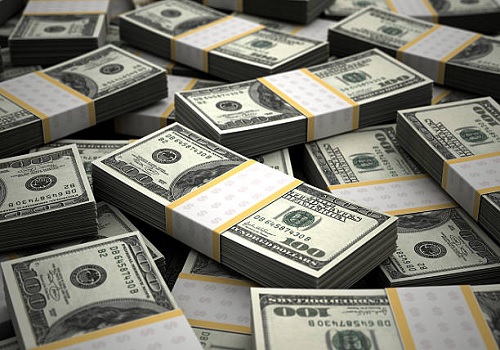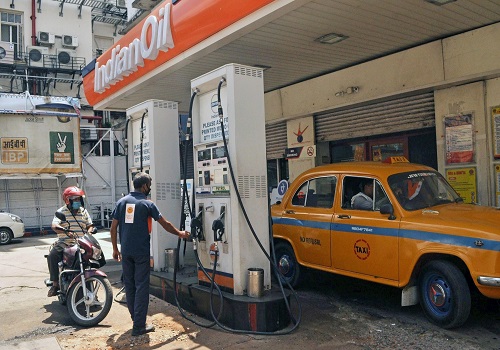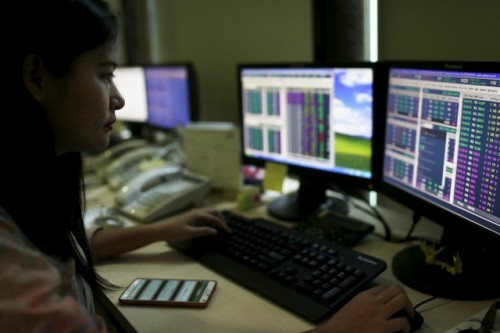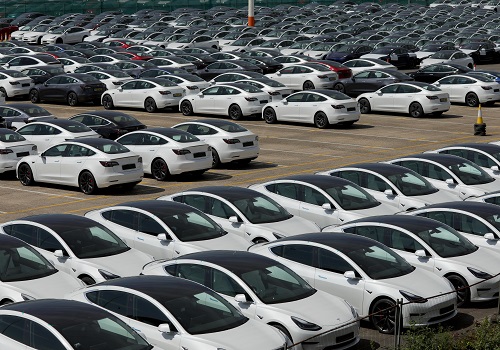Indian bourses extend decline for fifth straight session; Nifty sinks below 15,400 mark

Follow us Now on Telegram ! Get daily 10 - 12 important updates on Business, Finance and Investment. Join our Telegram Channel
a six-position jump from 43rd to 37th rank on the annual World Competitiveness Index compiled by the Institute for Management Development, largely due to gains in economic performance. Some support also came as Madhaiyaan Angamuthu, chairman of Agricultural and Processed Food Products Exports Development Authority (APEDA) said India’s agricultural and processed food product exports will continue to surge in the current fiscal after a record shipment valued at $25.6 billion in 2021-22 because of global demand for the agricultural commodities. Traders took a note of a report by Microfinance Institutions Network (MFIN) showing that the microfinance industry's Gross Loan Portfolio (GLP) grew by 10.04 per cent to Rs 2,85,441 crore as of March 2022. The industry's GLP stood at Rs 2,59,377 crore in March 2021
However, the rally was short-lived as key gauges witnessed a sharp fall in second half of trading sessions, as traders turned cautious as India added 12,213 fresh COVID-19 cases in the last 24 hours, witnessing a 38.4 per cent jump from 8, 822 cases. This is the first time since February 26 that the viral infections have crossed the 10,000 mark in a day. Some concern also came after RBI Deputy Governor M Rajeshwar Rao said that despite the improvement in asset quality, financial institutions, including banks, need to proactively undertake stress testing of loan books to examine their loss absorption limits and take steps to improve them wherever required. Adding the cautiousness among market participants, Foreign Institutional Investors (FIIs) have remained net sellers for the ninth consecutive month given the weak global sentiment. They have net sold more than Rs 31,000 crore worth of shares so far in June on top of more than Rs 2.2 lakh crore of selling in the previous five straight months.
On the global front, European markets were trading lower as fears mounted that the Fed might trigger a recession sometime in the next year with its aggressive rate action. The monetary policy announcement from the Bank of England is due, with analysts expecting another 25-bps rate hike coupled with cautious commentary around the economy. Asian markets ended mixed on Thursday amid concerns that higher U.S. interest rates could lead to more capital outflows from emerging markets. Investors continued to fret about high the impact of surging inflation on economic growth and corporate earnings.
Back home, mineral’s industry stocks were in focus as the government said the country’s mineral production rose by 7.8 per cent in April 2022 over the same month a year ago. Manganese ore, coal, lignite, bauxite and phosphorite were some of the minerals that showed positive growth in April. Cement industry stocks were in limelight as credit rating agency Fitch Ratings said it believes a sustained gross domestic product (GDP) growth, the government's thrust on infrastructure and affordable housing, and a revival in corporate capex, will underpin growth of the cement sector.
Finally, the BSE Sensex fell 1045.60 points or 1.99% to 51,495.79 and the CNX Nifty was down by 331.55 points or 2.11% to 15,360.60.
The BSE Sensex touched high and low of 53,142.50 and 51,425.48, respectively. There were 1 stock advancing against 29 stocks declining on the index.
The broader indices ended in red; the BSE Mid cap index fell 2.34%, while Small cap index was down by 2.87%.
The top losing sectoral indices on the BSE were Metal down by 5.48%, Basic Materials down by 3.55%, PSU down by 3.06%, Industrials down by 3.06% and Telecom down by 3.04%, while there were no gaining sectoral indices on the BSE.
The lone gainer on the Sensex was Nestle up by 0.30%. On the flip side, Tata Steel down by 6.04%, Tech Mahindra down by 4.37%, Bharti Airtel down by 4.11%, Wipro down by 4.04% and Indusind Bank down by 3.96% were the top losers.
Meanwhile, Commerce and industry minister Piyush Goyal has said special provisions provided to developing nations in all the agreements of the World Trade Organisation (WTO) through special and differential treatment are the non-negotiable matter for the emerging economies and they should be continued. He said the gaps between the developing and developed members have not yet narrowed down in decades but in fact have widened in many areas. And because of that S&DT (Special and Differential Treatment) provisions continue to be relevant. He added S&DT is a treaty-embedded and non-negotiable right for all developing members.
As part of the proposed WTO reforms, developed countries are saying that developing countries are bypassing rules in the name of self-proclaimed development status in the WTO. On the other hand, developing nations, including India, are demandeurs for special and differential treatment. The S&DT allows developing and poor (less developed) countries to enjoy certain benefits, including taking longer time for implementing agreements and binding commitments, and measures to increase trading opportunities for them. Currently, any WTO member can designate itself as a developing country and avail these benefits.
Goyal also pitched for resumption of smooth functioning of the appellate body of the WTO’s dispute settlement mechanism. He said ‘We need to accord priority to the reform needs, especially to the crisis at the appellate body, whose functioning should become more transparent and effective’. The appellate body is a standing body of seven persons that hears appeals from reports issued by panels in disputes brought by WTO members. Currently, the appellate body is unable to review appeals due to positions remaining vacant. The term of the last sitting appellate body member expired on November 30, 2020. Developed countries have also raised issues on working of this body and are seeking reforms in that.
The CNX Nifty traded in a range of 15,863.15 and 15,335.10. There were 2 stocks advancing against 48 stocks declining on the index.
The few gainers on Nifty were Nestle up by 0.50%, Britannia Industries up by 0.17%. On the flip side, Hindalco down by 6.74%, Tata Steel down by 6.35%, ONGC down by 5.42%, Coal India down by 5.39% and Tata Motors down by 5.10% were the top losers.
European markets were trading lower; UK’s FTSE 100 decreased 154.42 points or 2.12% to 7,118.99, France’s CAC fell 123.88 points or 2.05% to 5,906.25 and Germany’s DAX was down by 361.80 points or 2.68% to 13,123.49.
Asian markets ended mixed on Thursday amid concerns that aggressive policy tightening by US Federal Reserve could lead to more capital outflows from emerging markets. The Fed delivered the much anticipated 75 basis point rate hike overnight and has signaled more increases are on the way as it tries to tackle the worst inflation that is running at a 40-year high. While, the Swiss National Bank raised its policy interest rate with a surprise 50 basis point hike for the first time in 15 years. Japanese shares gained ahead of Friday's BoJ meeting, where the central bank is expected to stick to its easy-money policy even in the face of rising inflation. Japan's trade deficit soared to 2.4 trillion yen ($18 billion) in May, the biggest trade deficit the country has seen since January 2014.
Above views are of the author and not of the website kindly read disclaimer



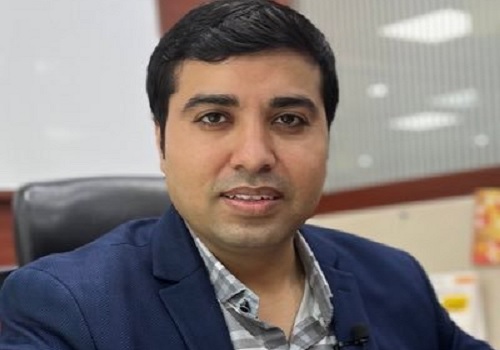
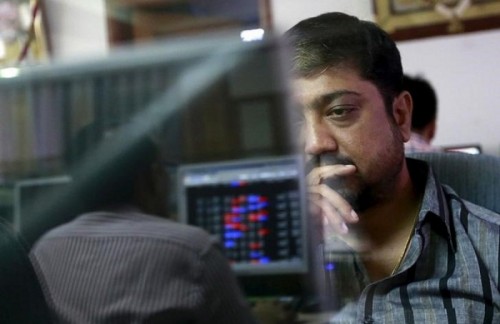





Tag News

Weekly Market Analysis : Markets strengthened recovery and gained nearly 2% in the passing w...







